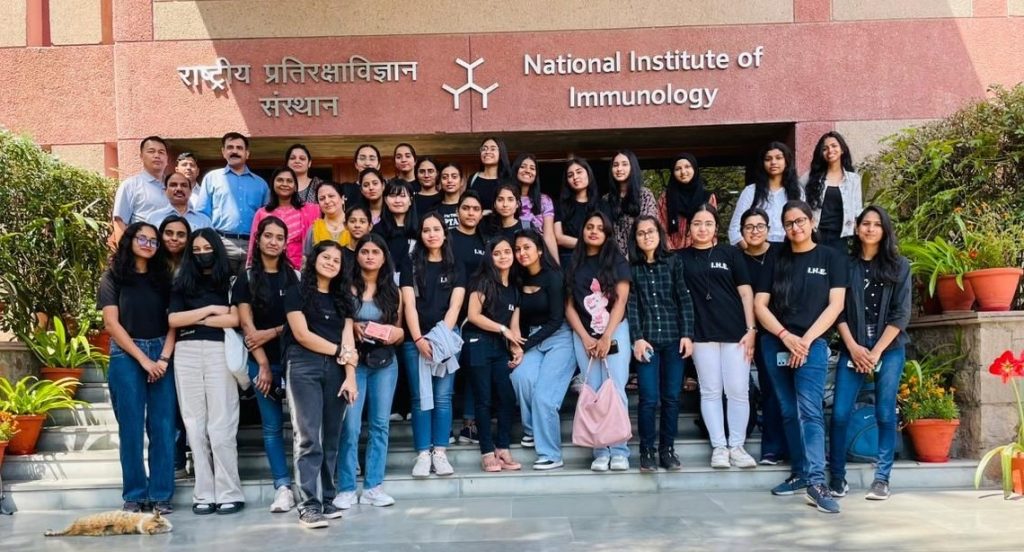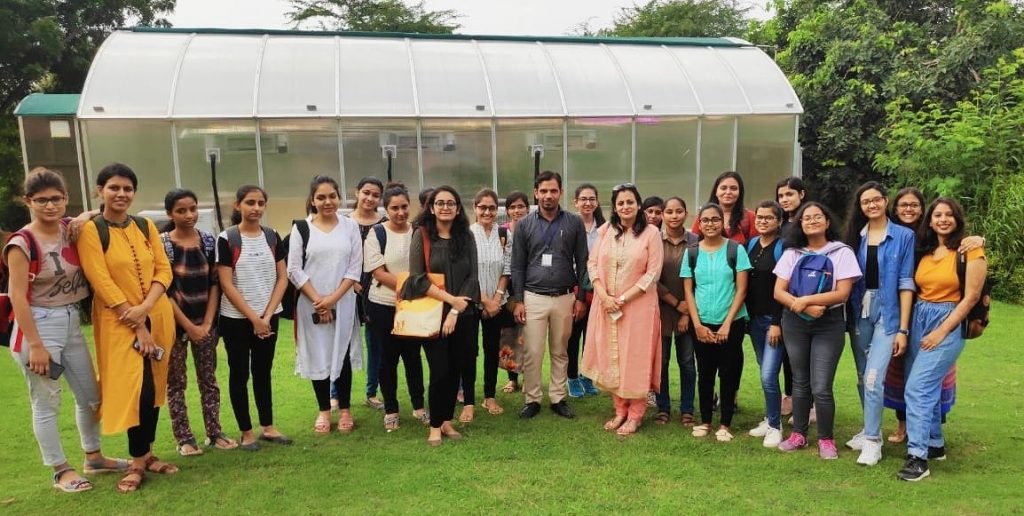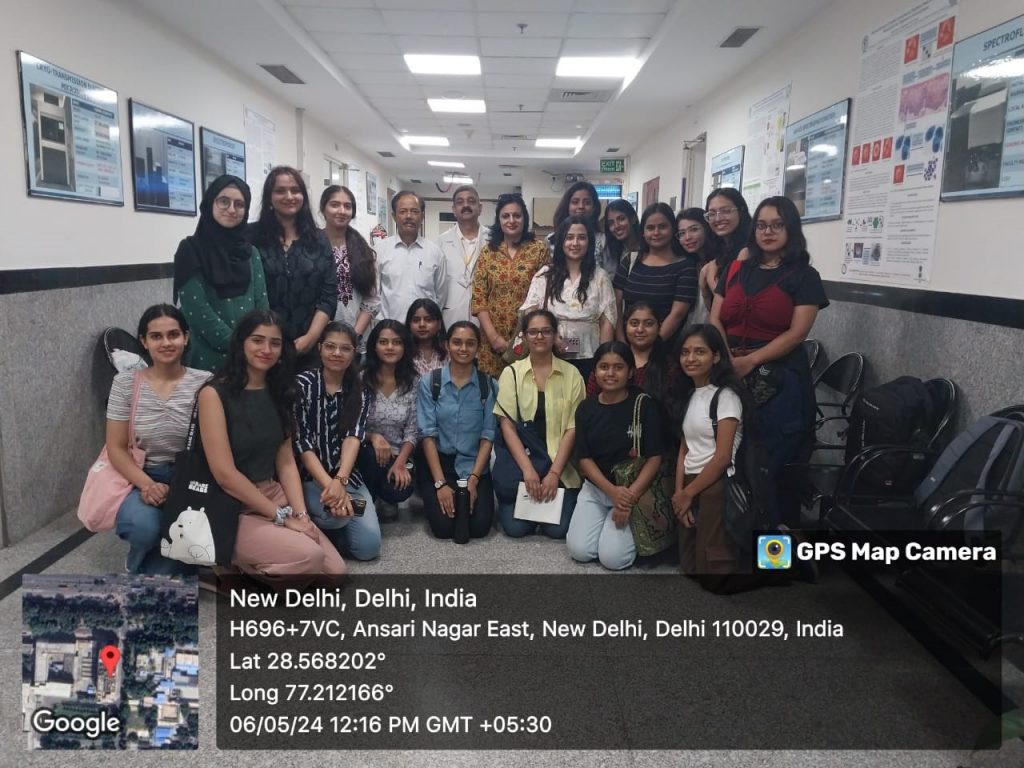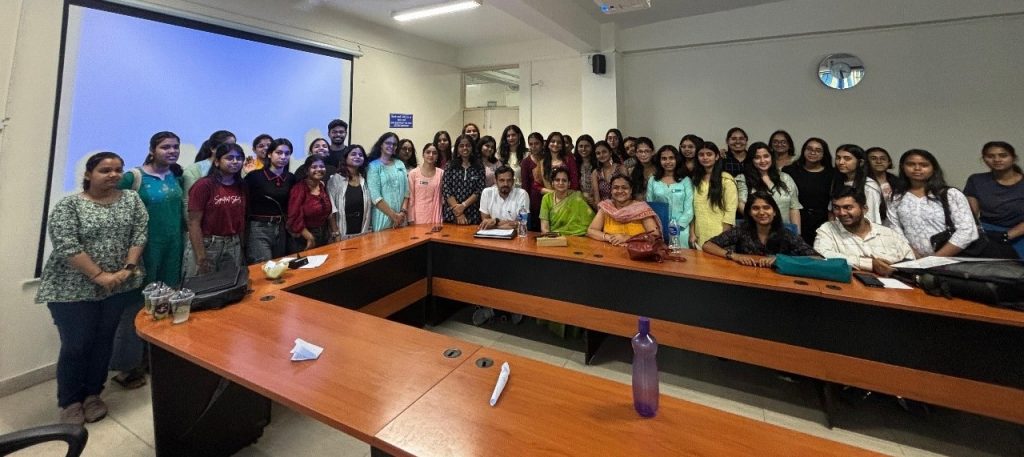B.Sc. (Honours) Biochemistry
B.Sc. (Honours) Biochemistry
About the course
Under the NEP program from 2022-23, students have gained significant flexibility. Exiting after the first year earns them an Undergraduate Certificate in Biochemistry, after the second year an Undergraduate Diploma, after the third year a Bachelor of Science (Honours) degree in Biochemistry, and upon completion of 176 credits in the fourth year, a Bachelor of Science (Honours with Research/Academic Project/Entrepreneurship) degree in Biochemistry. The programme aims to impart in each student the competence for research and innovation in Biochemistry and Biotechnology as a skilled experimentalist.
Workshops, symposia, webinars, quizzes, educational trips and personality development programs are a part and parcel of departmental activities. Eminent scientists from various research institutes and industries are regularly invited to ignite the minds of budding Biochemists. Students are also encouraged to undertake in-house research projects and summer internships that aims to help students gain exposure to cutting-edge research facilities, develop essential practical skills and learn effective scientific communication. Alumni reunion meet and Career counselling seminars are conducted annually to keep the students updated on various career prospects in healthcare sector, basic research, hospital management, clinical labs, Pharmaceutical industry, etc. Our alumni have achieved outstanding success by pursuing higher education at prestigious institutions both India and Abroad as well as securing encouraging job placements.
The department has competent faculty members with vast teaching and research experience. Also, non-teaching technical staff is well versed and provides great support in conducting practical classes. The department has well equipped laboratories, an instrumentation room with UV-Visible spectrophotometers, Colorimeters, PCR machine, CO2 incubator, ELISA reader, laminar flow culture hood, BOD, Microscopes and Horizontal as well as Vertical Electrophoresis units. Students also have free access to computer laboratory with internet facility and various essential technical softwares. The Department emphasizes independent research projects, industrial/lab visits, and extensive written and practice-based assignments/review articles/posters by the students, moulding them as independent researchers.
Programme Specific Eligibility
Candidates must appear in CUET in any of the following subject combinations:
Combination I: Chemistry + Biology/ Biological Studies/ Biotechnology/ Biochemistry + Physics
OR
Combination II: Chemistry + Biology/ Biological Studies/ Biotechnology/ Biochemistry + Mathematics
Merit will be based on the best CUET scores obtained from any of the above-mentioned combinations of subjects.
Candidates must have obtained a minimum of 30% score in any one language of List A in CUET
Course Objectives
Objectives of the course kept in sync with the NEP objectives include:
- To promote holistic development of students having the world view of a truly global citizen
- To provide flexibility to students so that learners have the ability to choose their learning trajectories and programmes, and thereby choose their paths in life according to their talents and interests
- To eliminate hierarchies among disciplines/fields of study and silos between different areas of learning
- Interdisciplinary and holistic education to ensure the unity and integrity of all knowledge
- To promote creativity and critical thinking and to encourage logical decision- making and innovation
- To promote Ethics as well as human & Constitutional values;
- To promote multilingualism and the power of language in learning and teaching
- To impart life skills such as communication, cooperation, teamwork, and resilience
- To promote outstanding research as a corequisite for outstanding education and development
- To incorporate the Indian Knowledge System relevant for a particular discipline or field of studies.
Programme Learning Outcomes:
The course is designed to achieve the following outcomes:
- Inculcate the basic concepts of biochemistry including an understanding of the fundamental biochemical principles and their applications in a systematic, methodical, scientific, evidence-based process. The programme will also provide a general understanding of the related disciplines with a holistic knowledge generation in biological sciences.
- Students will appreciate the essentiality of Biochemistry and develop problem solving and analytical skills through case studies, research papers and hands-on-experience, especially integrated into skill enhancement courses.
- Students will gain proficiency in basic laboratory techniques and be able to apply the scientific method to the processes of experimentation, hypothesis testing, data interpretation and logical conclusions.
- Provide requisite knowledge of laboratory safety, data replication and quality control, record keeping and other aspects of “responsible conduct of research”.
- Ability to employ modern library search tools to locate and retrieve primary literature on a topic and critically evaluate the literature.
- Students will be able to apply and effectively communicate scientific reasoning and data analysis in both written and oral forms. They will be able to communicate effectively with well-designed posters and slides in talks aimed at scientific audiences as well as the general public.
- Students will learn to work collaboratively in a team.
- Students will gain knowledge of ethical and good laboratory practices, health and biohazard regulations, plagiarism and intellectual property rights related issues practiced in the modern era of scientific investigation.
- Graduates will be able to apply the major theories and research procedures to contemporary societal issues.
- The programme will prepare students to plunge into various fields of higher education or related professions in various disciplines, armed with a plethora of knowledge, hands-on experience and scientific attitude, at national and global levels.
- Graduates of the B.Sc. (Honours) Biochemistry programme will be informed citizens who can understand and evaluate the impact of new research discoveries in the life sciences, and will be able to pursue a wide range of careers, including biological and medical research in higher education institutions as well as careers in public and global health, scientific writing, environmental organizations, and food, pharmaceuticals and biotechnology industries.
For more details, the candidates may refer to syllabus (UGCF, 2022) available on the website of University of Delhi at:
https://www.du.ac.in/uploads/new-web/15092023_Indis_sem1.pdf(Pages 1-17)
https://www.du.ac.in/uploads/new-web/15092023_Indis_sem3.pdf(Pages 1-25)
https://www.du.ac.in/uploads/new-web/18092023_Inter_4.pdf(Pages 1-76)





